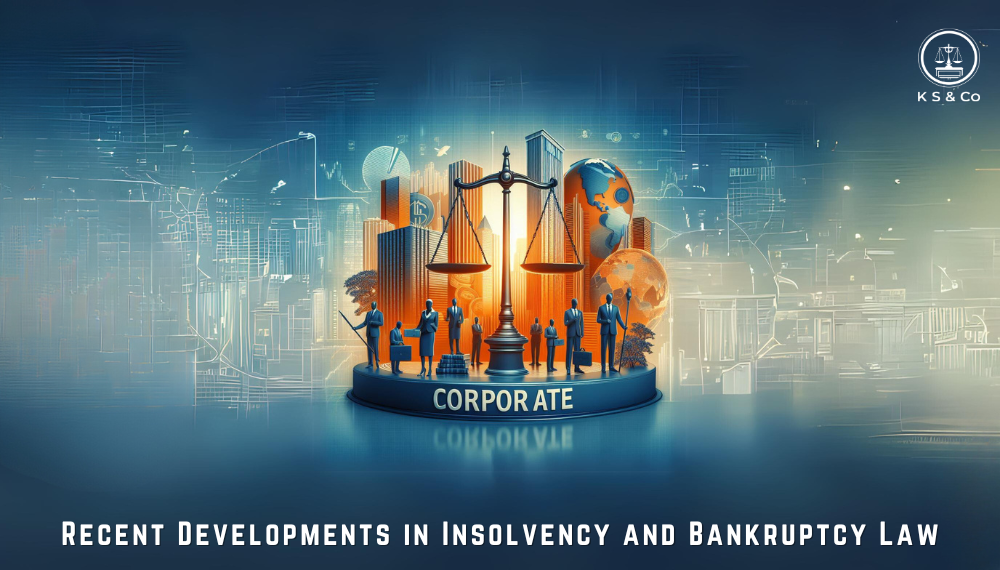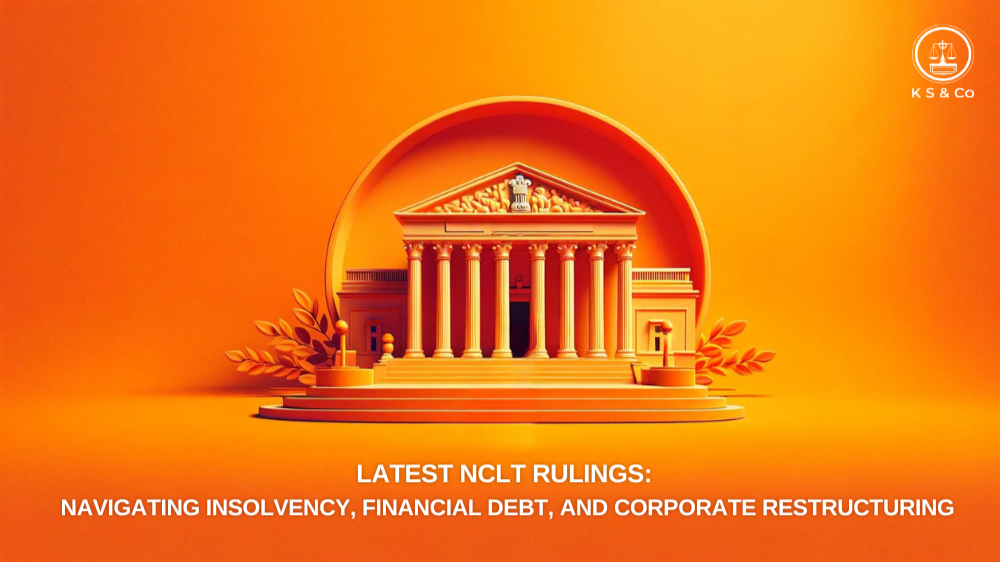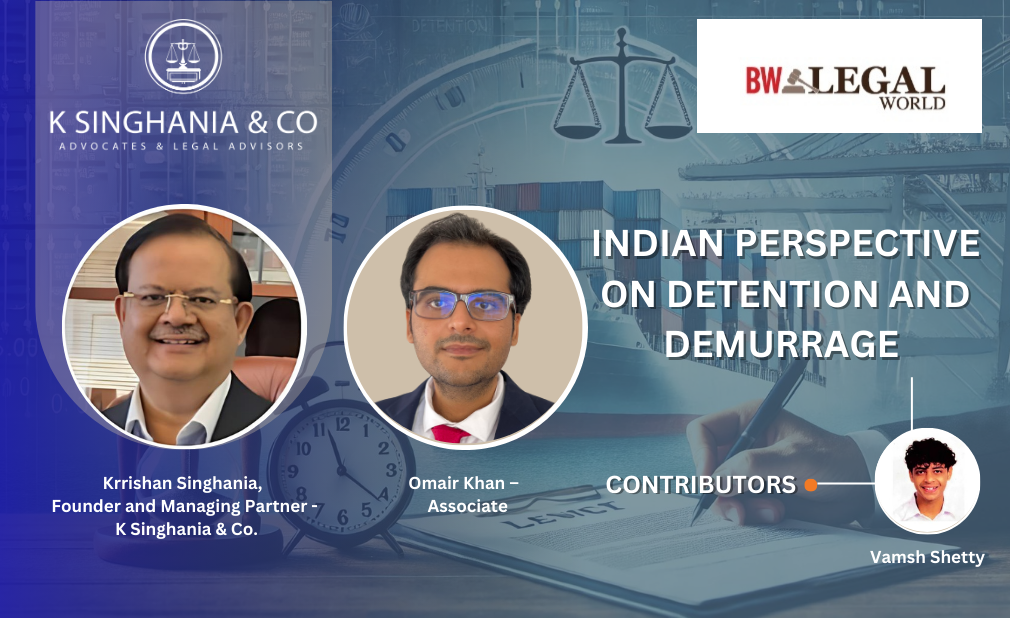S.P. Singla Constructions Private Limited V. Construction And Design Services, Uttar Pradesh Jal Nigam [ARB.P. 450/2021]
FACTS:
The parties had entered into a contract for the purpose of undertaking design, engineering, procurement and construction of a dedicated 4 lane corridor for old and differently-abled persons during Kumbh and Magh Mela in Allahabad across Ganga River.
Disputes relating to termination payment arose and the petitioner approached the Delhi High Court (“Court”) for appointment of arbitrator. The petitioners approached the Court, contending that the seat of arbitration was Delhi as the rules of procedure expressly chosen was of International Centre for Alternative Dispute Resolution, (“ICADR”) Rules, New Delhi.
The respondent however, objected to the jurisdiction of the Court at Delhi claiming that courts of Lucknow will have jurisdiction to entertain such an application as the venue of arbitration was Lucknow.
ISSUES:
The question before the Court was whether the seat of arbitration shall be New Delhi in the light that the arbitration has to be conducted in accordance with the Rules of ICADR, New Delhi or whether the same has to be Lucknow, in the light of agreement that the venue of such arbitration shall be Lucknow.
HELD:
The Court relied upon various judgments that distinguished between seat and venue of arbitration and held that reading the agreement entered into between the parties in the instant case, the choice of venue is also the choice of seat.
COMMENTS:
The distinction between the venue and seat of arbitration has been discussed in many judgements prior to this. However, this case lays down that ultimately the text of the agreement will determine whether parties intended the venue to be the seat or for the two to be distinct.
Jaipur Zila Dugdh Utpadak Sahkari Sangh Limited and Ors. v. M/s Ajay Sales and Suppliers [SLP (Civil) No. 13250 of 2021].
FACTS:
In March, 2015, the parties had entered into a Distributorship Agreement for the distribution of milk and butter milk in certain zones in Jaipur, which was for a period of two years. The dispute resolution clause of the agreement stated that all disputes were to be resolved by arbitration and the Chairman of Jaipur Zila Dugdh Utpadak Sahkari Sangh Ltd. was to be the sole arbitrator.
Disputes arose and while arbitration proceedings were pending before the Sole Arbitrator, the respondent i.e. M/s. Ajay Sales and Suppliers approached the High Court for appointment of an arbitrator in exercise of powers under Section 11 of the Arbitration and Conciliation Act, 1996 (“The Act”). The High Court allowed the application and appointed an arbitrator. The appellant aggrieved by the order of the High Court, filed an SLP before the Supreme Court (“SC”).
HELD:
Rule against bias is one of the fundamental principles of natural justice which applies to all judicial proceedings and quasi judicial proceedings and it is for this reason that despite what is contractually agreed upon by the parties, the persons mentioned in Subsection (5) of Section 12 read with Seventh Schedule to the Act would become ineligible to act as an arbitrator.
The SC therefore held that the Chairman is ‘ineligible’ to act as an arbitrator to resolve the dispute between the parties in view of Sub section (5) of Section 12 read with Seventh Schedule to the Act as he loses mandate to continue as a sole arbitrator.
COMMENT:
Section 12 (5) of the Act lays down that any person mentioned in the Seventh Schedule would be ineligible to be appointed as an arbitrator. This serves the purpose of ensuring that the arbitrator is impartial and that the interests of both parties are safeguarded.
Garg Builders v. Bharat Heavy Electricals Limited, [Civil Appeal No. 6216 of 2021]
FACTS:
The parties entered into a contract for construction of a boundary wall at Bawana, Delhi. Disputes arose between the parties and a sole arbitrator was appointed. The appellant in the claim petition, apart from claiming various amounts under different heads, inter alia claimed pre reference, pendente lite and future interest at the rate of 24% on the value of the award. The sole arbitrator awarded pendente lite and future interest at the rate of 10% p.a. to the appellant on the award amount.
This award was challenged by the respondent under Section 34 of the Arbitration and Conciliation Act, 1996 (“the Act”) before the Delhi High Court on various grounds, inter alia, on the ground that the learned Arbitrator being a creature of the arbitration agreement travelled beyond the terms of the contract in awarding pendente lite interest on the award amount as the same was expressly barred in terms of the contract.
HELD:
The Supreme Court (“SC”) held that the provisions of the Act give paramount importance to the contract entered into between the parties and categorically restricts the power of an arbitrator to award pre reference and pendente lite interest when the parties themselves have agreed to the contrary. The SC observed that in the present case, clause barring interest is very clear and categorical. Therefore, the SC held that if the contract contains a specific clause which expressly bars payment of interest, then it is not open for the arbitrator to grant pendente lite interest.
The SC also considered the question pertaining to whether such a clause would be ultra vires of Section 28 of the Indian Contracts Act 1872. The SC held that according to Section 28, a contract is void to the extent it restricts absolutely a party from enforcing his rights by usual proceedings in ordinary courts or if it limits the time within which he may enforce his rights. Exception I to this section contains a rule that a contract by which two or more persons agree that any dispute which has arisen or which may arise between them in respect of any subject or class of subjects shall be referred to arbitration is not illegal.
COMMENT:
This case shows that party autonomy is very important in contractual relationships. If the parties mutually come to an agreement regarding any restrictions, the same will be valid as long as it does not absolutely restrict a party from enforcing their right.
Godrej Properties Ltd. V/s. Goldbricks Infrastructure Pvt. Ltd.
FACTS:
A section 17 application under the Arbitration and Conciliation Act, 1996 (“the Act”) was filed by Goldbricks Infrastructure Pvt. Ltd. The sole arbitrator suo motu considered the respondent’s section 17 application and granted an ex-parte ad-interim order.
Aggrieved by the ex-parte order, the appellants filed an appeal against the order of the sole arbitrator under Section 37 of the Act.
HELD:
The Bombay High Court (“Court”) while allowing the section 37 application and setting aside the ex-parte ad-interim order in favour of Goldbricks Infrastructure Pvt. Ltd., observed that section 18 of the Act requires the parties to be treated fairly. Section 19 of the Act allows parties to agree on a procedure to be followed by the tribunal, distinguishing it from the court. Moreover, section 24(2) mandates that all parties ‘shall be’ given sufficient advance notice of ‘any hearing’.
The Court held that the proviso which deals with the Court’s power to pass ex-parte orders, cannot be applied to arbitral proceedings, in view of the clear provisions of sub-section (2) of Section 24 read with Section 18 of the Act.
COMMENTS:
The court by this judgement has reiterated the principles of natural justice by ensuring that parties are given sufficient notice of hearings.
Gujarat State Disaster Management Authority vs. Aska Equipments Limited [Civil Appeal No. 6252 OF 2021]
FACTS:
The appellant filed an appeal against the order of the High Court of Uttarakhand dismissing a writ petition against the order of the additional district judge whereby the appellant herein was directed to deposit 75% of the awarded amount in terms of Section 19 of Micro, Small and Medium Enterprises Development Act. 2006 (“MSME Act, 2006”).
ISSUES:
Whether in an appeal/application filed under Section 34 of the Arbitration & Conciliation Act, 1996 read with Section 19 of the MSME Act, 2006, the appellate court would have any discretion to deviate from the requirement of the deposit of 75% of the awarded amount.
HELD:
The Supreme Court (“SC”) held that the provision under Section 19 of the MSME Act to pre-deposit 75% of the awarded amount in case of appeal is mandatory.
COMMENTS:
The MSME Act, 2006 was brought into force to protect the interests of MSMEs and to ensure speedy recovery of dues to such MSMEs. It is with this objective that Section 19 of the MSME Act, 2006 requires a pre-deposit of 75% of the awarded amount if the non-MSME intends to file an appeal against the arbitration award.
DLF Home Developers Ltd. v. Rajapura Homes Pvt. Ltd. & Anr.
FACTS:
The petitioner had filed two arbitration petitions under Section 11(6) of the Arbitration & Conciliation Act, 1996 (“the Act”) for appointment of sole arbitrator to adjudicate differences that had arisen out of two construction management agreements.
Questions pertaining to whether dispute arose from the construction management agreement or a share purchase agreement entered into between the parties was discussed.
HELD:
The Supreme Court (“SC”) held that parties have neither denied that there is no ‘arbitrable dispute’ between them nor have they challenged the existence of the arbitration clause(s) in the construction management service agreements. In furtherance of this, the SC appointed a sole arbitrator.
The SC held that even when an arbitration agreement exists, the courts can decline a prayer for reference under Section 11 if the dispute was not correlated to the arbitration agreement.
Laxmi Continental Construction Co. v. State of UP, [2021 SCC OnLine SC 750].
FACTS:
The questions before the Supreme Court (“SC”) was whether when an officer of the department is appointed as an Arbitrator, his decision to continue the arbitration proceedings on his retirement would be invalid and whether the same would amount to misconduct.
The Civil Judge (Senior Division), Roorkee had granted an extension of time to the Sole Arbitrator to complete the arbitration proceedings. The respondents had objected to the additional 30 days extending post the retirement of the sole arbitrator from the post of Chief Engineer and that he cannot continue with the arbitration proceedings.
HELD:
The SC held that in the absence of any agreement regarding the retirement, the nominated arbitrator shall continue until he attracts any provision for disqualification of an arbitrator as provided for under the Arbitration & Conciliation Act, 1996 (“The Act”).
The SC therefore, held that the continuation of the arbitration proceedings did not constitute misconduct.
COMMENT:
If a nominated arbitrator continues with the arbitration proceedings after his retirement, the same would be valid, unless the agreement contains provisions regarding retirement of the nominated arbitrator.
Punjab State Civil Supplies Corporation Limited (PUNSUP) & Anr. v. Ganpati Rice Mills & Anr.
FACTS:
The Arbitrator had granted interest at the rate of 18% per annum from 01.01.2003 till the date of realization. This was subsequently reduced to 9% per annum in appeal of a Section 34 petition by the High Court.
HELD:
The Supreme Court (“SC”) held that Section 31 (7) of the Arbitration & Conciliation Act, 1996 (“the Act”) grants substantial discretion to the arbitrator in awarding interest. The SC further observed that no reason and grounds had been given by the High Court to reduce the rate of interest.
The SC therefore, restored the rate of interest as awarded by the District Judge, i.e. interest at the rate of 12% per annum from 01.01.2003 till the date of realization.
COMMENT:
This judgement reiterates the power granted under Section 31 (7) to the arbitral tribunal to grant interest while making an arbitral award for payment of money.






